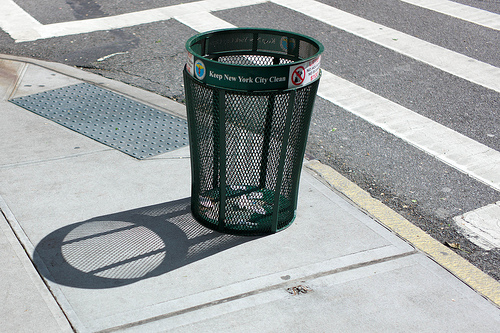For investors, keeping some of their portfolio in cash is almost passé with U.S. stocks continuing to set new record highs and saving accounts paying next to nothing.
However, having at least some cash on hand makes sense as an emergency fund. Also, as Jason Zweig recently pointed out in The Wall Street Journal, a cash stash provides the opportunity for investors to buy equities in bear markets when stocks are underpriced.
Of course, it’s hard for some to fathom a bear market since it has been over two years since the S&P 500 has suffered a 10% decline from a high. Also, the index has been floating above its 200-day moving average, a closely watched technical indicator, for nearly a year.
Indeed, market timers in the Rydex family of mutual funds tracked by SentimenTrader.com are holding very low relative levels of cash.
Yet investors should guard against the “recency effect” and other behavioral biases that can trick them into thinking stocks will rise forever.
“Having a cushion of cash can help you stay invested when stocks tumble — as they surely will sooner or later,” writes WSJ’s Zweig. “And a cushion can enable you to do what cash-poor investors find almost impossible: Buy stocks and other assets as bear markets turn them into bargains.”
In other words, investors shouldn’t make the mistake of abandoning cash in a frothy bull market. That’s not easy since investors may feel like they’re missing out on gains in stocks, and a cash position drags on overall performance in a rising market.
Investors should have three to six months of monthly expenses in a savings account or money market fund, says Kimberly Clouse, the Advisory Board Chair at Covestor.
She advises everyone to set up an emergency fund, and it’s even more critical for entrepreneurs and investors who may not have a steady income.
“It allows you to use cash to pay for those random expenses or emergencies that arise in your financial life, instead of creating more debt or tapping into long-term investments,” Clouse said. “You want to be able to tap into these funds easily, but you don’t want to tap them unless you really need to.”
From a purely investing standpoint, she notes investors may be reluctant to hold cash in a low-rate environment when purchasing power can be eroded by inflation. However, cash has other uses aside from income, and gives investors a reserve of buying power and additional flexibility, Clouse said.
In general, older investors might want to keep more cash on hand than younger individuals in the earlier phases of their careers. There are also different cash-like investments with varying degrees of risk. For example, ultrashort bond funds are viewed as less safe than money market funds and savings accounts.
The bottom line is that cash is not the ideal long-term asset, especially at times like the present when interest rates are near record lows. For example, the seven-day average yield on money market funds stands at just 0.01%. But there are often periods of uncertainty when cash is “king.” During these times, having access to ready cash enables investors to scoop up bargains at very low valuations. Under certain circumstances, therefore, investors should view cash as a perpetual call option on any asset instead of regarding it as an idle investment.

Chart source: Seeking Alpha
Photo Credit: artist in doing nothing
Disclaimer: The information in this material is not intended to be personalized financial advice and should not be solely relied on for making financial decisions. Past performance does not guarantee future results.





